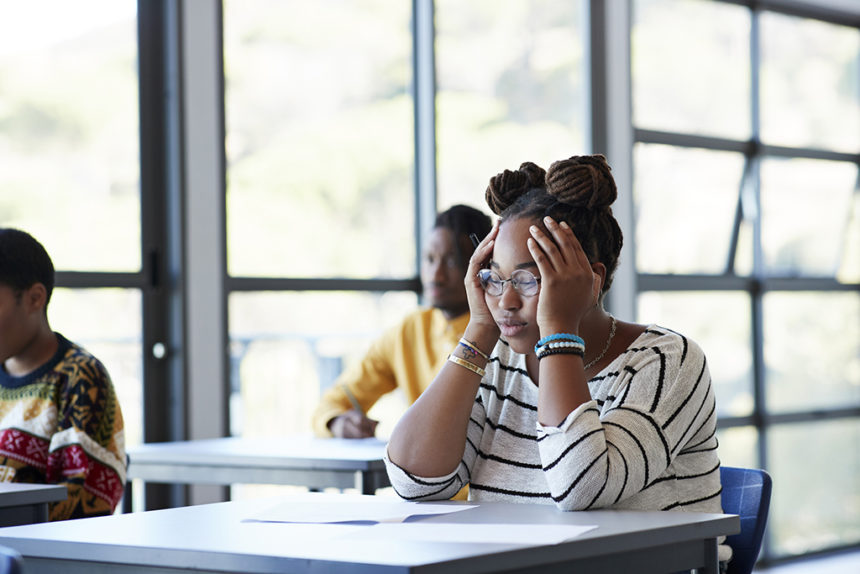Despite its reputation for being joy-filled and cheery, it’s no secret that holidays — especially those coinciding with the winter months — can bring extra pressure to people struggling with mental health issues.
A National Alliance on Mental Illness (NAMI) study found that 64% of people with mental illness felt the holidays made their conditions even worse.
That notion is reflected in a survey released this week by higher education virtual care provider TimelyMD, which surveyed more than 1,200 college students on mental health.
The study found that nearly 80% of students said they’re currently experiencing the same, or even higher, levels of stress and anxiety than they were last year.
About half of the students surveyed said they were stressed about visiting home over winter break, whereas the other half said they weren’t. However, almost half of the respondents listed family as the main source of holiday stress, while 41% pinpointed travel and 38% said finances. With inflation at an all-time high this year compared to recent years, financial stress has been weighing on many Americans’ minds.
“Mental health issues don’t take a winter break,” noted Seli Fakorzi, director of mental health operations at TimelyMD, in a statement.
Students who identify as LGBTQIA+ are feeling the most stressed about heading home over winter break, with 60% saying they were anxious about it, compared to 51% of students overall. More than 90% of non-binary students noted they were anxious about going home, compared to 55% of women and 44% of men.
The high rates of stress and anxiety reflect a larger nationwide mental health crisis, highlighted by U.S. Surgeon General Vivek Murthy last year. In an advisory, Murthy officially declared a mental health crisis among young people, exacerbated by the pandemic.
Still, there are ways young people can cope with the increased stresses on their mental health over winter break, starting with pinpointing several healthy ways to cope. While more than 60% of students said they would lean on friends for support, 51% said their family would be helpful and 38% intend to focus on limiting screen time to cope.
Despite the bleak findings, there are best practices and steps that can be taken to alleviate some of the mental health burdens this holiday season.
NAMI suggests pinpointing the triggers that can make mental health worse. For example, does holiday shopping, or stopping your exercise routine, make you feel worse? Does arguing with certain family members stress you out? The organization advises to identify the triggers and avoid or manage them, or set boundaries.
It’s also important to try to maintain the mental health routine developed during non-holiday times — whether that includes exercising, meditating, spending time in nature or hanging with friends.
“Give yourself the gift of taking care of you this holiday season,” Fakorzi continued in the statement. “Whether that includes self-care, peer support and/or professional counseling, a mental health reset now can help you enter the new year feeling refreshed and rejuvenated.”







